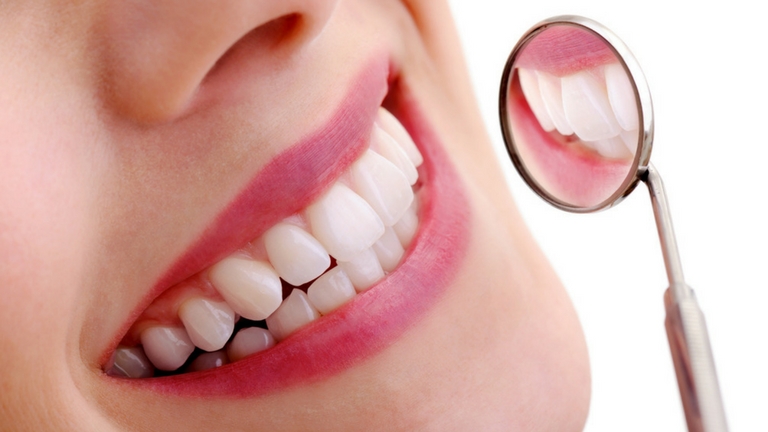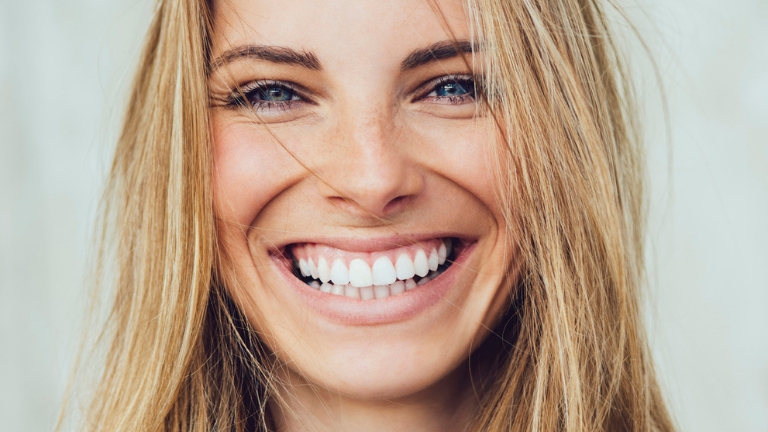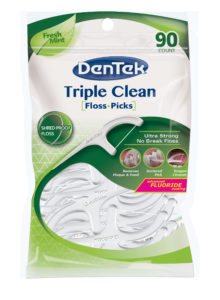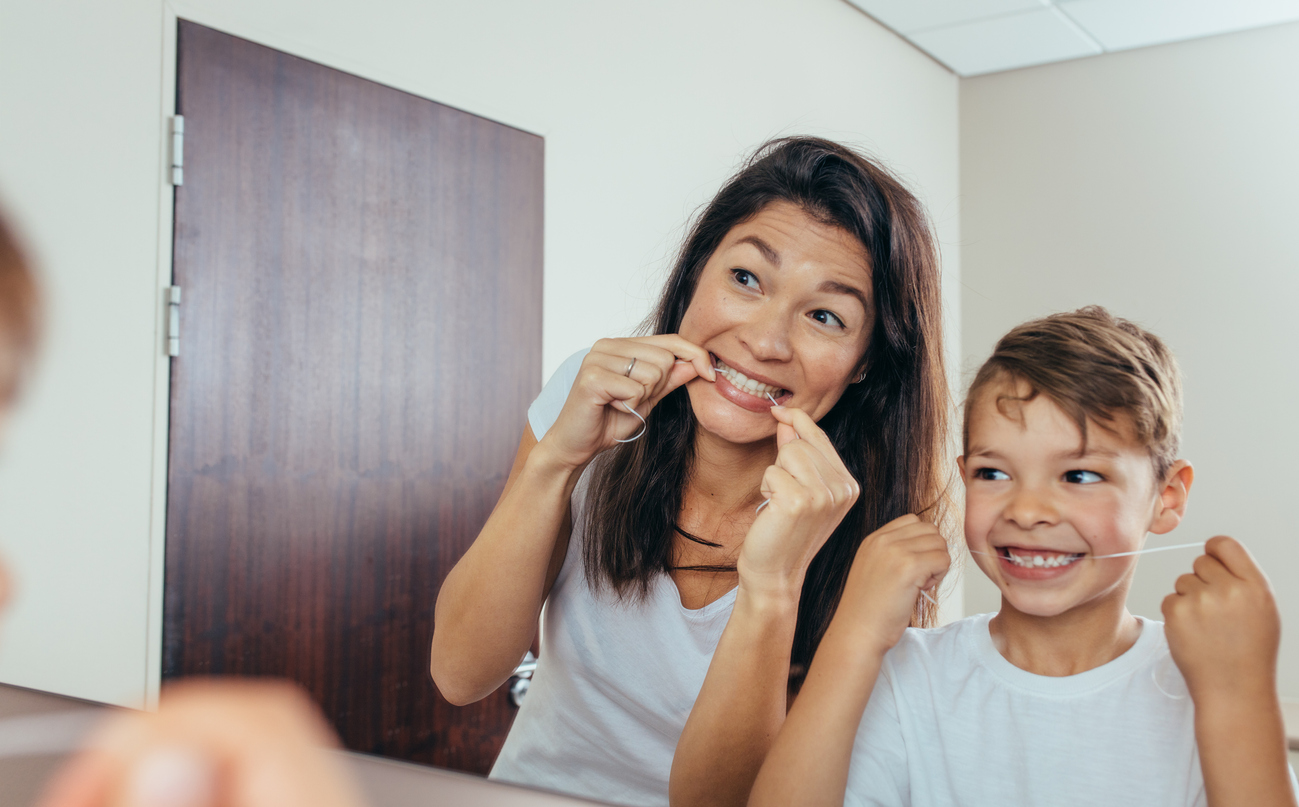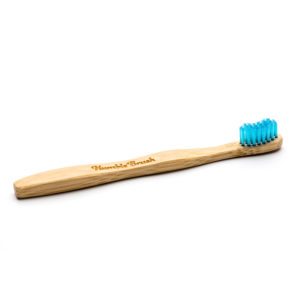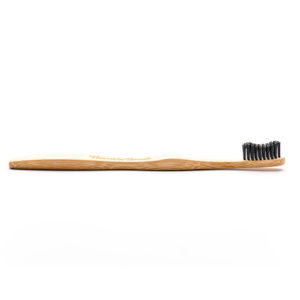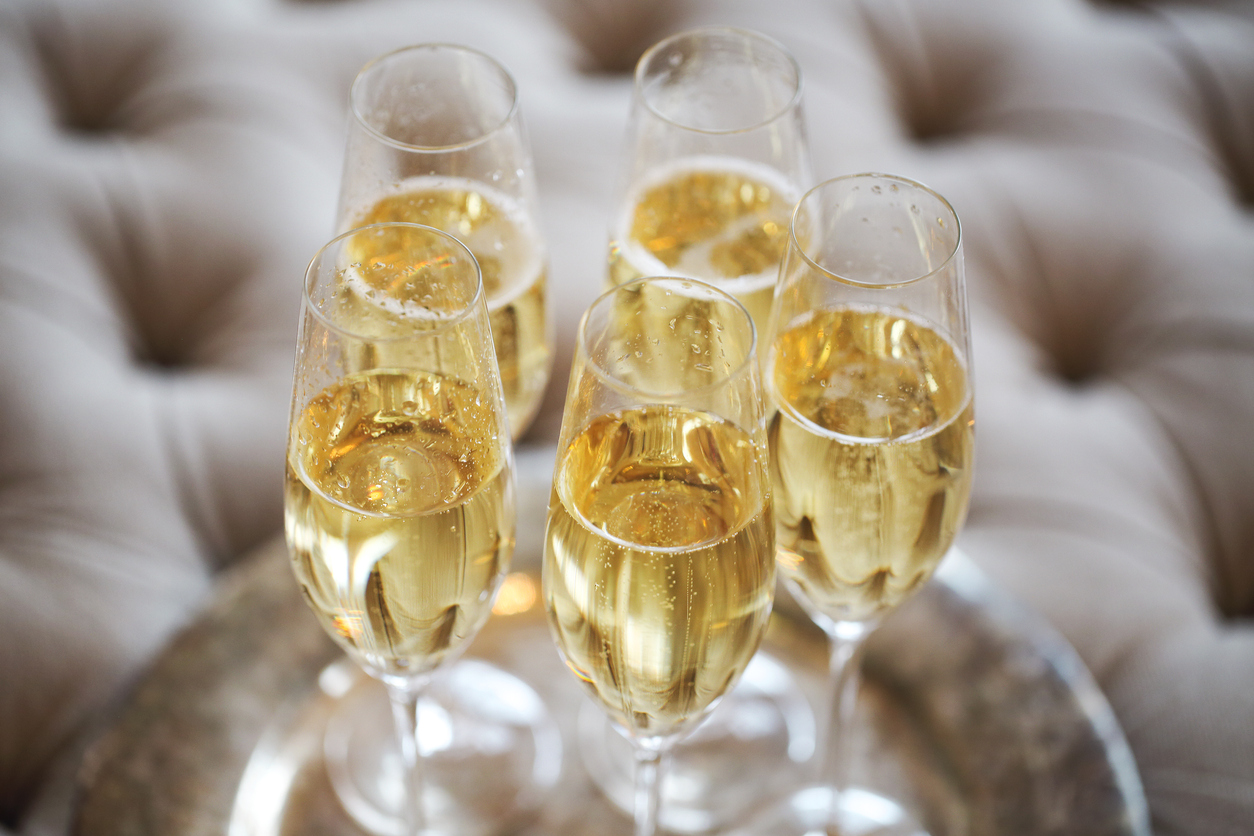Gum disease and tooth decay aren’t pretty and now poor oral hygiene has been linked to Alzheimer’s – but these simple smile hacks you can literally make tonight
Most of us brush our teeth daily. But did you know the way you clean your teeth might have an impact on your chance of developing Alzheimer’s?
Researchers at the University of Bergen in Norway have discovered a clear link between gum disease (gingivitis) and the brain disease.
‘We discovered DNA-based proof that the bacteria causing gingivitis can move from the mouth to the brain,’ researcher Piotr Mydel at Broegelmanns Research Laboratory, Department of Clinical Science, University of Bergen (UiB), told Science Daily.
The bacteria produces a protein that destroys nerve cells in the brain, ultimately leading to a poorer memory and Alzheimer’s. These bacteria aren’t the only cause of Alzheimer’s, says Mydel, but their presence is a clear risk factor.
The good news? Good oral hygience can slow down Alzheimer’s and the researchers at Bergen university are developing a drug to block the harmful affects of the bacteria.
But rather than get to that point where gum disease is a serious problem, what should we be doing to prevent it?
We asked some of Europe’s top dentists for their tips:
Smile secret #1 Follow the two-minute rule
If you’re one of those people who falls into bed without brushing your teeth. Or dashes out the door thirty secionds after jumping out of bed. I’m sorry but it’s time to slow down in the bathroom.
We should all brush twice a day for two whole minutes, says
Dr Mihir Shah, Head Dentist at Battersea Park Dental and supporter of DenTek, the
oral care specialist. Two minutes doesn’t sound like long but trust us it’s longer than you think.
Shockingly, 1% of adults NEVER brush their teeth, 4% of adults brush their teeth for 30 seconds or less, while 23% of adults brush once a day, that’s according to a survey by Electric Teeth. It’s no wonder so many of us are battling gum disease and tooth decay.
‘People who don’t brush their teeth will likely develop gum disease quickly. I recommend a toothpaste containing at least 1450ppm fluoride (+ 5% potassium nitrate if your teeth are also sensitive), used twice a day. After brushing your teeth, spit the toothpaste out but don’t rinse – the thin film of toothpaste covering your teeth contains fluoride that will protect your teeth for longer and may even reverse decay.’
After brushing your teeth, spit the toothpaste out but don’t rinse – the thin film of fluoride will protect your teeth and may even reverse decay
Smile secret #2 Try those nifty little brushes
Hands up who flosses, day-in-day out? Hmm. Not that many hands there. If you scrimp on the flossing you’re far from alone, but you’ll be missing a top smile secret and increase your risk of Alzheimer’s.
Brushing alone is equivalent of cleaning just 60% of your tooth surface and misses plenty of plaque. It’s plaque removal that prevents gum disease, cavities, bad breath and other dental diseases – and reduces your Alzheimer’s risk. We should be flossing once a day, every day, say dentists.
If you don’t get on with flossing then interdental brushes will do the trick, removing plaque in places where a toothbrush cannot reach. They’re also the best option for wider gaps, say dentists.
‘Depending on the size of the gaps in-between your teeth, both interdental brushes and floss picks can be effective for flossing. If your teeth are crowded or very tight against each other, you may not be able to fit an interdental brush through the gap, but flossing should still be a very important part of your cleaning regime,’ says Dr Shah, adding, ‘but never floss with strange items e.g. hair, plastic and string.’ Apparently some people actually do that. Weird.
Fortunately there are brushes to fit your smile, however gappy or tight your teeth. For tighter teeth try DenTek Triple Clean Floss Picks, £5.50, Boots. For medium gaps, DenTek Slim Brush Ultra Fine, £4, Boots, For larger gaps, DenTek Easy Brush, £4, Boots. Or try Humble Interdental Brushes, £4, Boots.
Smile secret #3 Skip mouthwash straight after brushing
Surprising fact: using mouthwash at the same time as brushing your teeth will only wash away the fluoride protection that your toothpaste gives you, so do use the mouthwash – but not straight after brushing.
‘Try using a fluoride mouthwash at least once during the day. Fluoride is a great way to protect your teeth and helps reverse the early signs of tooth decay,’ Dr Mihir Shah continues.
We like Beverly Hills Perfect White Gold Mouthwash, £5.49, Superdrug.
using mouthwash at the same time as brushing your teeth will only wash away the fluoride protection that your toothpaste gives you
Smile secret #4 Take your baby to the dentist – yes really
‘Parents should take their child to visit the dentist as soon as the first tooth has erupted (come through),’ says Dr Shah. Unfortunately this comes as a surprise to many parents, as a study from the Faculty of Dental Surgery shows, only 20% of one and two-year-olds have had their teeth checked.
Brush children’s teeth with a toothpaste that contains no less than 1,000ppm of fluoride and from 3+ years children should be using a toothpaste with at least 1450 ppm of fluoride, as long as they are spitting the toothpaste out after brushing rather than swallowing it, says Dr Shah. Parents should use a soft toothbrush, try Humble Kids Brush, £3.99, Waitrose, to gently brush the tooth and gum around it, for two minutes, to instill the habit early.
And flossing is not just for adults. Kids should start flossing as soon as the child has 2 teeth that touch, says Dr Shah, who recommends DenTek Kids Fun Flossers, £4, Boots.
Smile secret #5 Don’t brush after breakfast (or any meal)
Just eaten? Wait at least 20 minutes after your last snack, meal or glass of wine before brushing your teeth. ‘Our mouths get more acidic whilst eating and drinking,’ says Dr Mihir. This means enamel will be brushed away if you brush your teeth immediately, not great for your smile.
Smile secret #6 Go soft on your gums
Many people choose the hardest toothbrush, thinking a harder toothbrush will automatically work better, but a softer brush is generally safest, says Dentist and The Humble Co. Founder, Dr Noel Abdayem . ‘A soft toothbrush is gentler to gums and other soft tissues in the mouth. By brushing incorrectly and too vigorously you can damage the gums, root surface, and the protective tooth enamel. A soft toothbrush is thus the safest choice as there is less risk with brushing incorrectly’.
Humble Brush has soft end-rounded bristles which are kind to your gums and the bamboo toothbrush is a great eco alternative to the standard plastic toothbrush. What’s not to like?
Humble Brush, £3.99, Holland & Barrett
But what about the manual vs electrical toothbrush debate?
‘Manual and electric toothbrushes are equally effective, when it comes to removing the oral plaque that causes decay and gum disease,’ says Abdayem, a fact backed up by the American Dental association (ADA).
‘As long as you brush for at least two minutes, cover all areas of teeth and gums, don’t forget the tongue, – you’re doing a good job. Brush gently and use soft end-rounded bristles. No particular technique or brush has been shown scientifically to be more beneficial. It’s really whatever works for you.’ If you prefer electric, we like Philip’s Sonicare EasyClean, £35, from Boots.
Smile secret #7 Change your brush every three months
Men keep using the same brush for an average of six months, compared to women who change theirs four times a year. So who’s right?
The girls have got the right idea according to dental pros, who recommend changing your toothbrush about every three months, or sooner if the bristles are frayed. This is because the bristles lose their effectiveness once broken down and it can be difficult to reach all areas around your teeth.
And change your brush immediately if you’ve been ill. ‘When you’ve been sick with a cold or flu, or have had a mouth or throat infection, sore throat, or a mouth sore, you should replace your toothbrush even if it’s new. Doing so will help prevent re-exposing yourself or others in your household to germs that could cause an illness’.
Smile secret #8 Those tongue scrapers aren’t just a gimmick
‘Cleaning your teeth and gums is essential to keeping your mouth healthy and feeling fresh and your tongue should be no different,’ says Dr Shah. ‘The shape and texture of your tongue makes it an ideal environment for bacteria to fester. Brushing your tongue, or using a tongue cleaner can help keep your tongue feeling as good as the rest of your mouth and could prevent bad breath. My personal favourite is the DenTek OraBrush as it is gentle, yet effective’.
We like DenTek Orabrush Tongue Cleaner, £5.20, Boots
Smile secret #9 Say no to smoking
We all know about the bad breath and tooth discoloration caused by smoking, but did you know it can lead to a buildup of plaque and tartar on the teeth?
In addition, smoking breaks down the soft tissue and bone that anchor teeth in the jaw, meaning it’s linked to tooth loss.
What’s more, long-term smokers can experience other shocking symptoms including inflammation of the salivary glands, increased risk of developing leukoplakia, which are grey or white patches in the mouth, which can lead to cancer if left untreated, and a incrementally higher risk of developing gum disease. Disturbing.
Smile secret #10 Pass on the Prosecco
Yes you read that right, we said: ‘Pass on the Prosecco, not pass us the Prosecco.’ I know we’re sad too.
Why is Prosecco so bad for your teeth? Sugar and acid intake from drinks can really damage your teeth, particularly fizzy drinks and alcoholic ones like Prosecco. The combination of fizz and high sugar in Prosecco could mean it’s worse for you than other booze.
Dr Mihir Shah explains ‘the more acidic a drink is, the worse it will be for your teeth and enamel. That coupled with the high sugar content in alcoholic drinks can be disastrous to your teeth. Where possible, adding ice to your drinks reduces the risk of damage to your teeth as not only does it dilute your drink, it reduces the amount of acid because it’s colder. Drinking through a straw also helps.’
Other drinks to avoid include lemon water. Lemons are a good source of vitamin C but lemon juice is highly acidic and can cause erosion in tooth enamel over time. If you sweeten that lemon water with sugar, you increase the risk of tooth decay as well. Rinse your mouth with plain water after drinking. It is not the amount, but the frequency of sugar in your diet that cause tooth decay.
Spreading your sugary treats throughout the day might seem sensible, but is worse for your teeth
A top tip is to finish your meal with a small piece of cheese. Cheese is great at reducing the acid levels in your mouth after eating, helping to protect your teeth – and who doesn’t love eating cheese?
Beware of dried fruit. Fruit like raisins are so packed with sugar that dental experts say they are worse for kids than eating a bag of crisps.
Smile secret #11 Eat more cauliflower
Home whitening remedies can do lasting damage if you’re not careful. Tooth whitening products containing baking soda are mildly abrasive, which will remove surface stains from your teeth, making them appear whiter, but not actually changing the colour. Long term use of these can irreversibly damage your enamel. They can also make teeth very sensitive. Some other home remedies are even worse (such as lemon juice) as they are acidic and will strip enamel from teeth.
Instead try Beverly Hills Formula Perfect White Black Toothpaste, with active charcoal which blasts bacteria and whitens without damaging teeth.
An interesting yet essential and healthy tip is to drink more water – Dehydration makes your teeth less white. It’s not just good for your overall health, but drinking plenty of water throughout the day helps your teeth stay hydrated too.
Food can even help whiten teeth including natural whiteners such as cauliflower and, even, strawberries.
More Healthista Content:
5 natural fixes for joint pain proven by science
This woman had an EYELASH transplant
10 best vegan restaurants in London from this top plant-based blogger
Everyone’s talking about Manuka honey…but why is it so expensive?
Like this article? Sign up to our newsletter to get more articles like this delivered straight to your inbox.



